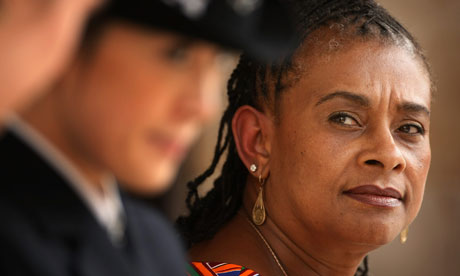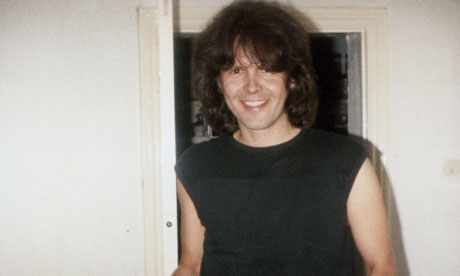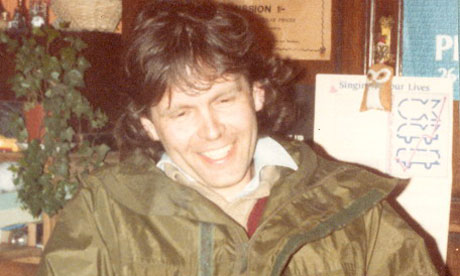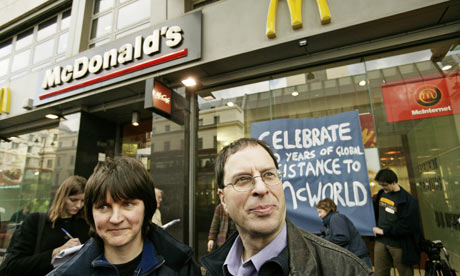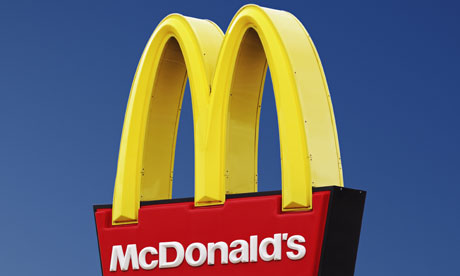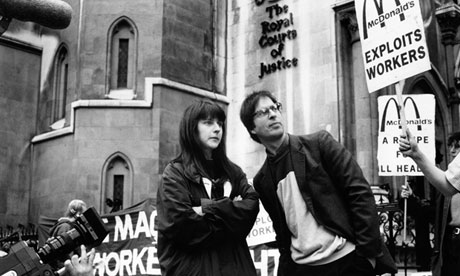The irony for some is that the Muslim Brotherhood and its supporters remain the upholders of the ballot box's legitimacy
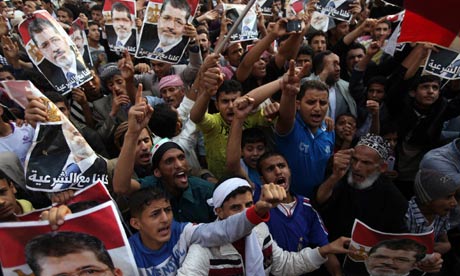
Supporters of Mohamed Morsi: 'The security apparatus is taking revenge for the last two years when it felt threatened by the possibility of any new order.' Photograph: Mohamed Al-Sayaghi/Reuters
The military and police state has returned in full force to Egypt. A country that for a brief period after 60 years of dictatorship was on a path of democratic transition saw a reversal of that process with the coup on 3 July against Egypt's first freely elected president. The coup was justified on the basis of a mass popular outpouring on the streets, although it is generally accepted now that the numbers were a fraction of those claimed by the military and its supporters.
Those calling for a return to the days that preceded the 25 January revolution in 2011, which brought about the fall of Hosni Mubarak, were not only the military high command, the interior ministry, the security services and the police, but critically the judiciary and the state media. These coteries of power actively worked together to block the smooth functioning of the state.
This went hand-in-hand with a vicious campaign to vilify and demonise the party in power, namely the Muslim Brotherhood. Propaganda campaigns against them had been a feature of Egypt's dictatorships from Nasser to Mubarak in an attempt to weaken the main challenge to the regime. But the secular and liberal opposition, having failed to win enough votes themselves, played spoilers rather than engage in the political process, accept the results and campaign for the next elections.
And so the military and this opposition to Mohamed Morsi were to come together in an alliance of convenience with at least a nod from the US and UK to bring down the elected government through unconstitutional means. The street would have to be the way out if the ballot box was not delivering desired results. The method was a well-choreographed campaign that, despite genuine popular support, was essentially directed by the interior ministry and military.
As we examine the debris of Wednesday's massacre (where mounting casualty numbers are suggesting more than 1,000 deaths), there are two parties in today's power struggle. On one side is the ancien regime and its liberal allies – that small core of revolutionaries opposed to the Brotherhood and the politicking Salafi parties. On the other side is the Muslim Brotherhood and its supporters, including pro-legitimacy liberals who refused to broker the idea that votes suddenly counted for nothing. The irony for some is that it is the Islamist side that is upholding the legitimacy of the ballot box and the commitment to a civil state.
During the elected government's year-long term some said that the ballot box was not enough and that Morsi was not inclusive enough, but the fact remains that the ballot box is an essential part of the democratic process. Politically, what Egypt lacked during its experiment in democracy was a loyal opposition. Instead, the opposition that came together under the umbrella of the National Salvation Front decided to back a military coup.
The public is told through the state-controlled media that the sit-ins that have filled Egypt's squares were hijacked by terrorists bent on destroying state institutions. The west is told that part of the roadmap that General Sisi has sanctioned includes a limited number of cabinet posts for the Muslim Brotherhood. Notwithstanding such blatant distortion of electoral will, the vast majority of the Brotherhood's rank-and-file are determined that its opposition to the military coup be peaceful and its leadership categorically reject violence.
What Egypt has experienced since the coup has been the systematic return of the military and police state through arbitrary arrests, media clampdown and the shooting of protesters. Egypt's state institutions, as in most dictatorships, are corrupt and fearful of change. The security apparatus is taking revenge for the last two years when it felt threatened by the possibility of any new order that would eventually hold it accountable. Since the coup began it feels it has taken control again and is ready to strike hard at anyone who challenges it, whatever their ideology.
The civilian facade to this regime is no guarantee against human rights abuses. On the contrary, it provides them with greater shelter. Egyptians are divided today between those who long for security and economic stability, and those who know that although the price is high, the country is at a crossroads of military dictatorship and the possibility of a civil society.
There is still a window of opportunity to side with those committed to democracy in Egypt, and to put pressure on the military by cutting off aid from the United States and by ensuring that it has to be held accountable for any crimes against humanity.


